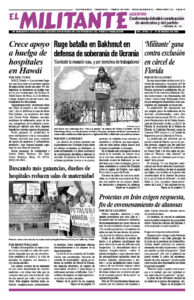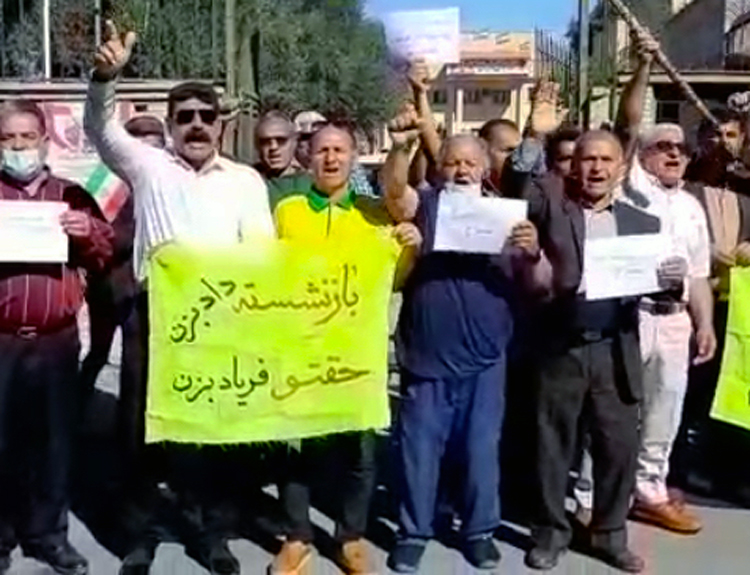Weekly protests by retired workers in Iran that began Jan. 22 demanding the government raise social security payments to keep up with inflation continue. On March 12 and 13 retirees from the steel, telecommunications, sugar and other industries protested in at least a dozen provinces across the country.
The minister of the economy recently said inflation is nearing an annual rate of 45%, but the National Union of Retirees says that many basic necessities have more than doubled over the last year. The value of the Iranian currency lost some 30% of its value against the dollar in the last three months alone.
Even the head of the pro-regime “Veterans Union of the Iranian Labor Community” complained to the Iranian Labor News Agency that wages are too low, pointing out, “It’s not wage increases that cause an increase in inflation.”
Like workers and farmers throughout the capitalist world, toilers in Iran bear the brunt of the worldwide capitalist economic crisis, compounded by financial and trade sanctions imposed on Tehran by Washington and its allies. The crisis is exacerbated by the cost of the bourgeois clerical regime’s military interventions in Iraq, Lebanon, Syria and Yemen. The regime’s attempts to extend its counterrevolutionary reach are not popular among working people in Iran.
The independent Free Union of Iranian Workers noted that while the government owes substantial amounts to workers’ pension funds it has increased spending on hated government bodies that help repress and spread lies about the “Women, life, freedom” protests.
The Supreme Labor Council — a government body made up of bosses, government officials and pro-regime labor “representatives” — has not been able to agree on how much to raise the minimum wage this year. The council has been considering a minimum monthly wage of 18 million tomans ($380).
The Free Union of Iranian Workers says that’s not enough to live on. The group says it can cost 17 million to 20 million toman or more a month just to buy food for a family.
Meanwhile, Gholamhossein Mohseni Ejehi, the head of Iran’s judiciary, claimed March 12 that the government had given amnesty and released 22,000 people who had been imprisoned for joining the protests that peaked in November. That is even higher than government opponents had previously estimated. While there have been numerous reports of individuals or small groups being released there haven’t been any reports in the press of mass releases.
The government continues to arrest union activists, defenders of the rights of oppressed nationalities, and other protesters, including many who joined actions last week demanding answers and an end to the poisoning of students at girls schools around the country.
The Tehran and Suburbs Bus Drivers Union called on the government to immediately and unconditionally release union leader Reza Shahabi, “as well as all imprisoned labor activists, teachers and political prisoners.”


